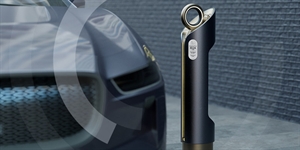Wed 10 November 2021
View all news

The Government has confirmed an earlier proposal that all new heavy goods vehicles in the UK will be zero emission by 2040. Combined with the 2030/5 phase-out of petrol and diesel cars and vans, this means the end to sales of all vehicles with tailpipe pollution in the next two decades. The announcement was timed to coincide with 'Transport Day' at COP26 as the critical summit nears its conclusion.
The Government says that the UK is the first country in the world to commit to phasing out new, non-zero emission heavy goods vehicles weighing 26 tonnes and under by 2035, with all new HGVs sold in the UK to be zero emission by 2040.
Also announced on Transport Day is the commitment of a group of 24 countries and 6 major vehicle manufacturers (GM, Ford, Mercedes, BYD, Volvo, JLR), 39 cities (including New York), states (including California) and regions, plus 28 fleets and 13 investors to work towards 100% zero emission new car and van sales by 2040 globally and 2035 in leading markets.
Countries signing up included Canada, Denmark, India, Ireland, Mexico, the Netherlands, New Zealand and Sweden as well as the UK.
Companies (including NatWest, Aviva, Sainsbury’s and Tesco) are included in the commitment. They follow proposals made by the EU, Chile, Canada and a number of US states this year to ensure all new cars are zero emission by 2035.
However, key countries including Germany, the US and Japan didn’t sign the 2040 commitment and four of the five biggest manufacturers, including VW, Toyota, Renault-Nissan and Hyundai-Kia were also missing from it.
A number of emerging markets and developing economies have also committed to work to accelerate the adoption of zero emission vehicles in their markets, including India, Ghana, Kenya, Paraguay, Rwanda and Turkey.
As previewed in an earlier Zemo Partnership news story, the UK government is also unveiling a new design for electric vehicle chargepoints, which the Government says "could become as iconic as the Great British post box, London bus or black cab". The design from the Royal College of Art and PA Consultiong is showcased in the UK Pavilion at COP26.
The design concept is intended to provide greater choice to industry and local government, as well as raise awareness and generate excitement around electric vehicles.
Several initiatives have also been launched today to help ensure a global and equitable transition to ZEVs and support the acceleration of transport decarbonisation. This includes the World Bank’s Global Facility to Decarbonise Transport – a multi-donor trust fund that will mobilise US$200 million over the next 10 years to support the decarbonisation of road transport in emerging markets and developing economies in the Global South. Today, the UK announced a £4 million initial contribution to the fund, which will support these countries to accelerate the decarbonisation of transport and build greener and more resilient economies.
UK Transport Secretary Grant Shapps said: "From our roads to the skies, the transition to zero emission transport has reached a tipping point...
"To support the transition to EVs, it’s integral that we have the infrastructure to support it. My vision is for the UK to have one of the best EV infrastructure networks in the world, with excellent British design at its heart.
Related Links
< Back to news list